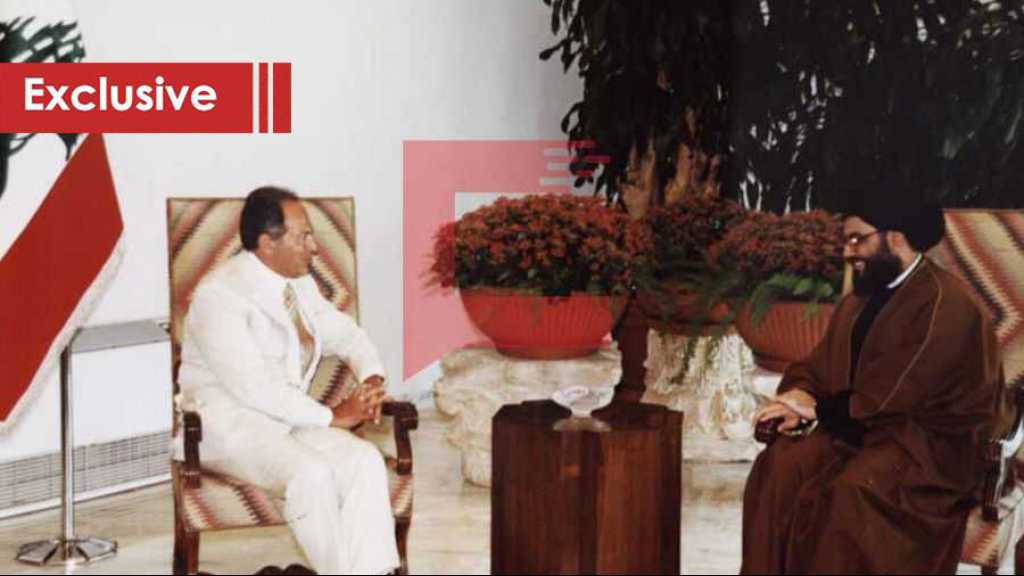Loyalty and Identity: Jewish Allegiance to ’Israel’ and the Case of Mike Waltz

By Mohamad Hammoud
Lebanon – The recent dismissal of Mike Waltz, former “National Security” Advisor under Donald Trump, has reignited a longstanding debate over the loyalties of Jewish individuals in government and their alignment with “Israel.” Waltz’s ouster was tied not only to a communications mishap but, more significantly, to his behind-the-scenes coordination with “Israeli” Prime Minister Benjamin Netanyahu regarding military options against Iran—a move that angered Trump and raised questions about where Waltz’s ultimate allegiance lay.
This incident, while unique in its details, reflects a broader historical and ideological pattern in which Jewish individuals, particularly those in positions of power, are scrutinized for prioritizing “Israel” over their country of citizenship. This essay examines the Waltz controversy, explores similar cases of alleged dual loyalty, and assesses whether Jewish religious doctrine mandates such allegiance.
The Waltz Controversy: Behind-the-Scenes Coordination with “Israel”
Mike Waltz’s downfall was precipitated by two interconnected issues. First, he mistakenly added a journalist to a Signal group chat involving top officials discussing military operations in Yemen—a breach that embarrassed the administration and raised concerns about operational security. Far more consequential, however, was his reportedly unauthorized and “intense coordination” with Netanyahu regarding potential US strikes on Iran’s nuclear facilities, pushing a hawkish agenda that clashed with Trump’s preference for diplomacy.
According to multiple reports, Waltz was informed of his firing while attempting to board Air Force One, underscoring the urgency with which the White House viewed his breach of trust. His behavior raised red flags among national security officials, particularly after it was discovered he had used TeleMessage, a modified “Israeli” messaging app, during high-level meetings. A recent hack of TeleMessage’s servers exposed archived chat logs, revealing that the platform lacked end-to-end encryption—potentially compromising sensitive US communications.
While Netanyahu’s office denied extensive contact with Waltz, White House insiders painted a different picture, suggesting Waltz had attempted to steer US policy toward military action in alignment with “Israeli” interests, sidelining Trump’s diplomatic efforts. This perceived dual loyalty—advocating for a foreign government’s agenda without presidential authorization—reportedly sealed Waltz’s fate.
Waltz’s case is not just a security failure; it exemplifies a deeper and recurring tension: the question of whether some Jewish American officials, out of ideological affinity or religious conviction, place the interests of “Israel” above those of the United States.
Historical Examples: Jewish Officials and Allegiance to “Israel”
Waltz’s case is not an isolated incident. History offers several examples of Jewish Americans in government who have faced scrutiny over their ties to “Israel.” One of the most infamous cases is that of Jonathan Pollard, a US Navy intelligence analyst who, in the 1980s, passed thousands of classified documents to “Israel.” Pollard claimed he acted to protect Jewish lives by sharing intelligence the US was allegedly withholding from its ally. He was sentenced to life in prison, served 30 years, and was welcomed as a hero upon his release and arrival in “Israel”—a reception that many US officials viewed as a stark signal of competing national loyalties.
Another notable example is Lawrence Franklin, a Pentagon analyst convicted in 2005 for leaking classified information to individuals connected to the pro-“Israel” lobbying network. Though less publicized than Pollard, Franklin’s case reinforced concerns about the risk of insider influence serving foreign interests. Together, these episodes have left a lingering shadow over perceptions of Jewish Americans in sensitive national security roles.
Beyond individual actors, critics point to powerful institutions such as the American “Israel” Public Affairs Committee [AIPAC]. As one of Washington’s most influential lobbying groups, AIPAC is known for steering US foreign policy in “Israel’s” favor through aggressive political pressure and strategic campaign funding. Its influence has deepened suspicions about Jewish loyalty to “Israel.”
Even high-level officials like Jared Kushner, Trump’s son-in-law and senior advisor, faced growing criticism over where their loyalties lay, particularly due to Kushner’s sustained efforts to advance “Israel’s” interests in the Middle East. Central to these concerns was his role in brokering the Abraham Accords, a series of agreements that normalized relations between “Israel” and several Arab states. While widely praised as historic diplomatic breakthroughs, the accords disproportionately served “Israel’s” strategic and economic interests—most notably by sidelining the Palestinian question. Rather than addressing the core issues of the “Israeli”-Palestinian conflict, the agreements effectively bypassed them, reinforcing perceptions that they were designed primarily to benefit “Israel” while marginalizing Palestinian concerns.
Judaism and Loyalty to “Israel”
Many Jews around the world feel a deep emotional, cultural, and religious connection to the land of “Israel.” This connection is rooted in Jewish tradition, theology and liturgy, all of which emphasize the centrality of “Israel” as a divinely promised homeland. Over centuries, prayers, religious holidays, and the experience of exile have continually reinforced a collective longing for return and restoration. With the rise of modern Zionism and the eventual establishment of the so-called "state of 'Israel'", these emotional and cultural bonds have only grown stronger. Although Jewish religious doctrine does not obligate individuals to betray their country of citizenship in favor of “Israel,” many nonetheless act out of a profound sense of loyalty and sacred attachment to the land.
Conclusion
The case of Mike Waltz underscores the complex interplay between Jewish identity, religious tradition and political loyalty. It illustrates how some individuals in positions of power may act in alignment with “Israel’s” strategic interests even when doing so undermines US policy. While some Jews are loyal, law-abiding citizens of their respective countries, many across the world maintain emotional ties to “Israel” and prioritize it above their country of citizenship.
Comments




